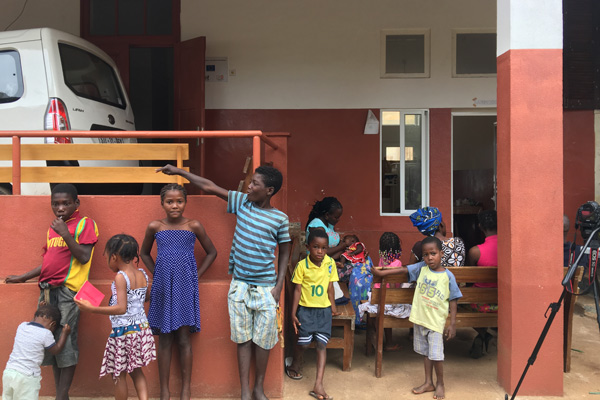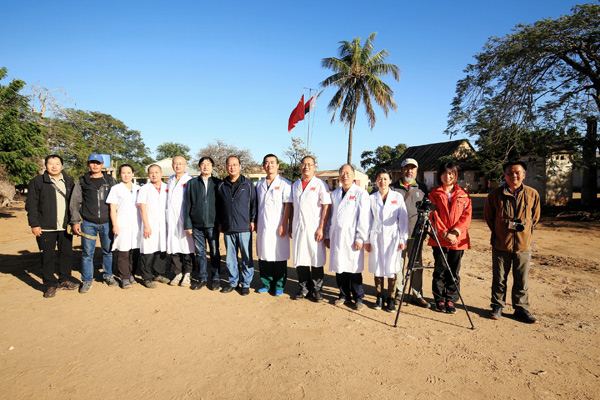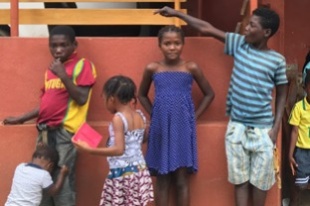Documentary honors China's doctors in Africa


History needs to be remembered-the voice-over of a newly-released documentary, Border for Doctors, begins with a line like this, setting out the stall of the documentary crew from the beginning.
Comprised of four 45-minute episodes, Border for Doctors recounts touching stories of Chinese medical teams and the African people they have treated over 55 years since the first group of 13 doctors and nurses, dispatched by the Chinese government, arrived in Algeria in April 1963.
"In preparing, shooting and editing the show, director Wang Baocheng and I both gave top priority to the truth," says He Yali, the producer of Border for Doctors. "We have recorded the solid friendship established between people in China and Africa through this long-term cooperation," he explains, adding, "We unveil the inside details of the medical staff's work and life, such as how Ebola patients were treated at isolation wards."
The production unit have traveled to 14 domestic cities and nine countries in Africa since last February, interviewing over 100 Chinese diplomats, ambassadors, leaders and health ministers of African countries, as well as medical teams and their patients.
The series, aired by CCTV on Aug 19 and 20, garnered over 80 million viewers across the country.
"The stories are true, as are the laughs and tears of the Chinese doctors and African people on camera," says the producer. "The audiences can feel the kindness and virtue of these medical professionals."
Cao Guang, a member of a team that offered medical assistance in Guinea, says the scenes in the documentary brought back memories of the doctors' unforgettable fight against the Ebola virus outbreaks in 2014.

"I had been isolated for a period of time because I was exposed to some Ebola patients," he recalls. "I was quite stressed, witnessing the pain, suffering-and in some cases, death-of colleagues and patients. However, I had to stay calm and support my teammates.
"I knew my family and my country were concerned about our emotional and physical well-being, but the local people needed our help."
About 50 Chinese medical professionals have sacrificed their lives on the African continent over the past five decades. The stories narrated in the documentary represent the epitome of China's half-century of medical assistance to Africa, according to Cao.
"The documentary showed me the fearlessness of my compatriots and will spread their reputation and that of the Chinese medical teams around the world," he says. "I'm honored to be one of them."
Li Wentao, a researcher from the China Institute of Contemporary International Relations, says international cooperation in the field of healthcare embodies the spirit of humanity and internationalism, echoing Canadian Doctor Norman Bethune's selfless devotion to the Chinese people more than 80 years ago.
"Today, the China-Africa partnership is built on the basis of mutual benefits and win-win results. Dr Bethune's spirit of internationalism is indispensable in this context," says Li. "Those angels in white are messengers of peace and friendship."





































